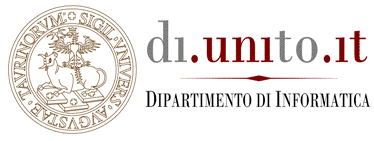 Literacy
from Scratch
Literacy
from Scratch
Conference papers
 The
“Literacy from Scratch” project has sparked off a fair bit of
interest in academic circles, and there have been a few conference papers,
some of which are available for download here.
The
“Literacy from Scratch” project has sparked off a fair bit of
interest in academic circles, and there have been a few conference papers,
some of which are available for download here.
The links to the items will download or download and open Word documents. They are licensed under a Creative Commons Attribution-Non Commercial-No Derivs 3.0 Unported License. To view a copy of this licence, visit creativecommons.org/licenses/by-nc-nd/3.0/
1) A Working Model for Teacher Training in Computing
Key Competencies for Educating ICT Professionals
Lawrence Williams, Brunel University, Uxbridge, West London, UK
Miroslava Černochová, Charles University, Prague, Czech Republic
Barbara Demo, Department of Informatics, University of Torino, Italy
Sarah Younie, De Montfort University, Leicester, UK
Abstract
Starting in September 2014, classroom teachers in the United Kingdom are required
to move away from teaching ICT, towards new Programmes of Study in Computing,
including computer programming. This paper presents a developing international
working model for teacher training, designed to support this major change
in focus. Conceived at Brunel University, west London, ideas for the development
of computer coding in the classroom were swiftly shared with colleagues at
Charles University, Prague, the University of Torino, Italy, and De Montfort
University, UK. Based on the MIT Scratch program, teacher trainers and classroom
pupils are introduced to elementary block-coding, through a highly creative
cross-curricular teaching and learning project called “Literacy for
Scratch”. This centres on the cross-curricular production of animated
narratives, together with the pupils’ own art work, for Sprites and
Backgrounds. This, in turn, is supported by a set of three inter-connected
web sites: Literacy from Scratch, for teaching materials; World Ecitizens,
for pupils to publish their narrative work (some as bi-lingual stories); and
MESH, for pedagogical papers which support the process. The project has successfully
engaged pupils in computer coding from the ages of 5 through to 14.
Keywords
Computing, Teacher Education, Creativity
- Paper given at the IFIP 2014 Conference in Potsdam (Word 110 KB)
2) Developing Computational Thinking Skills through
the
Literacy from Scratch project
An International Collaboration
Miroslava Černochová, Charles University, Prague, Czech Republic
Mark Dorling, Computing at School, 5 Southampton Street, London, UK
Lawrence Williams, Senior Academic Fellow, MirandaNet, UK
Abstract
This paper builds on the growing international success of the Computing project,
Literacy from Scratch, showing how computational thinking skills (mainly algorithmic
thinking at this early stage) can be developed through this creative, cross-curricular
project. The project is now established in several countries (in the UK, the
Czech Republic, Italy, and Pakistan) and it has been presented in several
more (in Poland, Germany, Sweden, Turkey, and Korea). However, while it provides
an excellent starting point for the development of computational thinking
in schools, there is now a clear need to show teachers how computational thinking
can be incrementally developed through this project, and underpinned by research.
Accordingly, this paper looks at the practicalities of the project itself,
and suggests ways in which the Progression Pathways (an assessment framework
with a set of incremental skills, concepts, and principles) set out in England
by Computing at School (CAS), and researched and developed in the Czech Republic,
can begin to be mapped.
The Literacy from Scratch project is supported by a dedicated website in several languages: www.literacyfromscratch.org.uk and has an accompanying Routledge text book, “Introducing Computing” ed. Lawrence Williams, with chapters by Miroslava Cernochová, and Mark Dorling.
Progression Pathways assessment framework can be found at:
community.computingatschool.org.uk/resources/1692
and were developed by Mark Dorling, and others at Computing at School.
Key Words
Computing, programming, progression, creativity, cross-curricular learning,
Scratch, story-telling, the pupil´s concept of a computer, assessment
framework







